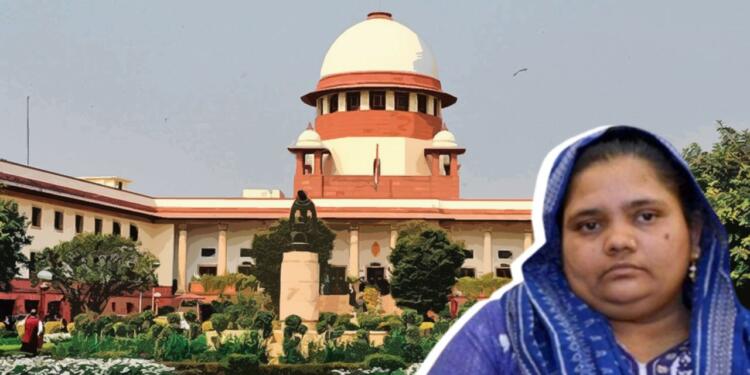The Gujarat government’s action to grant relief to 11 prisoners involved in the gangrape of Bilkis Bano and the brutal killing of her family following the 2002 Gujarat riots has been overturned by the Supreme Court.
Bilkis Bano filed an appeal in the Supreme Court, which sparked anger among people. The government emphasized the Union Home Ministry’s consent to its detention within two weeks. Individuals such as CPI(M) leader Subhashini Ali, journalist Revati Laul, former Lucknow University vice-chancellor Roop Rekha Verma, and TMC leader Mahua Moitra filed PILs challenging the remission. The recent Supreme Court decision emphasizes the legitimacy of the state of trial in such cases, indicating that Maharashtra is the proper jurisdiction. This ruling is significant in addressing concerns about the release of convicts linked to serious crimes committed during the 2002 Gujarat riots.
A Brief History of the case
During the Gujarat riots in 2002, sparked by a fire of the Sabarmati train carrying ‘karsevaks,’ Bilkis Bano and the rest of her family were subjected to a horrible assault. Evading violence, pregnant Bilkis looked for refuge in the Chhaparvad district, but on March 3, 2002, she was attacked by a group of 20-30 people, involving 11 men alleged of sexually assaulting her. The attackers abused Bilkis Bano, who was 5 months pregnant at that time, her mother, and three other women, killed her three-year-old daughter along with seven family members. Following the assault, Bilkis, with the help of an Adivasi woman, registered a complaint at Limkheda police station and underwent examination at a public hospital in Godhra.
Even though the crime was serious, the initial investigation was not carried out correctly. Evidence tampered with – By the time Bano’s medical examination was performed, several days had passed, and significant data had been destroyed. At first, the police did not want to file a First Information Report (FIR), and when they did, they omitted important information about the incident.
Seeking justice, she approached the National Human Rights Commission and later the Supreme Court after the local police initially rejected her case. The accused were apprehended in 2004 after the Supreme Court directed the Central Bureau of Investigation (CBI) to investigate the case. To prevent the possibility of evidence alteration, the jury trial was relocated from Ahmedabad to Mumbai. In 2017, 13 people were found guilty of rape, murder, and conspiracy charges, with 11 receiving life sentences. The attempts to reverse the decision were futile, and the Bombay High Court confirmed the life sentence.
LIFE SENTENCE!! – Why the convicts are out of jail?
After serving 15 years, one of the offenders looked for early release in 2022. One of the convicts, Radheshyam Shah, petitioned the Gujarat High Court for a stay of execution under regulations outlined in sections 432 and 433 of the Penal Code of Criminal Procedure. Under its remission policy, the Gujarat government unanimously decided in favor of remission for all 11 convicts in the case, and they were released from the Godhra sub-jail on August 15, 2022.
Read More: Bilkis Bano Case Takes Centre Stage as CJI Forms Special Bench
Justice or not!
The decision sparked widespread anger and petitions in disagreement. Bilkis Bano demanded that the detention be reviewed by the Supreme Court. After receiving disputes from the Centre and the Gujarat government, the Supreme Court denied the remission today i.e. January 8, 2024. The court ordered the 11 convicts to turn themselves in within two weeks, emphasizing the importance of justice in the Bilkis Bano gang rape case.




























